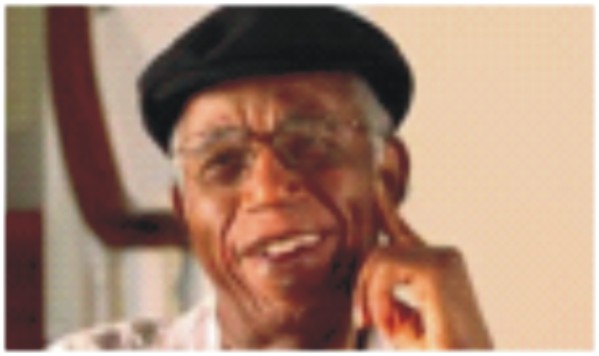By Nnamdi Nwigwe
G.S.M: 08037024609
The news about the death of Chinua Achebe hit me in a very personal way, coming exactly a fortnight of the burial of my eldest brother, Benji, as his Owerri contemporaries called my own “head of states,” Ben C. Nwigwe.
Achebe had come to mean so much to me, almost as a brother, since we had a prolonged chat on the pictureque campus of the University of Ife, Ile-Ife in 1973, nearly 40 years ago.
Achebe was one of over 20 resource people that presented papers at an International Conference on “Publishing in Africa in the Seventies,” which was jointly organized by the University of Ife Press and the University of Ife Bookshop Ltd at Ile-Ife, from 16 to 20 December, 1973.
More than 100 people from all over the world participated in the conference, which understandably had a heavy African presence, 14 African countries!
An appreciable number of delegates also came from the United States and Western Europe of which yours truly was one.
As an editor with the Afrika-Englisch Abteilung (Africa-English Department) of the Radio Deutsche Welle, the Voice of Germany, Cologne, I came to Ile-Ife, Nigeria, as a foreign participant among the large German team.
Pre-flight airport chit chats among the participants, on-flight discussions and conversations in the air-conditioned luxury bus that took us from Ikeja airport all the way to the beautifully landscaped University of Ife, centered on the conference and the prospect of each and every one of us hoping to meet and shake hands with Chinua Achebe whose expected paper on “Publishing in Africa: A writer’s View” had been highlighted in the conference fliers.
As a Nigerian, as an Igbo man, I was really proud that our Achebe was held in such a high esteem by my German colleagues, some of whom were senior executives of the world famous Frankfurt Book Fair.
The first day of the conference, December 16 1973, a Sunday, was taken up with protocol matters as we expatriates were checked into Hostel rooms which we had paid for along with our registration, weeks ahead.
But even as many participants tried to settle down and get ready for the official opening the next day, Monday, 17 December, questions were being asked whether Chinua Achebe had arrived or not, whether he would attend at all.
There were even some insinuations as to whether the conference organizers weren’t merely using Achebe’s name to promote the conference. But before we retired for the night some of us got dependable information that Achebe had indeed arrived and would be there the next day, in flesh and blood, to present his paper.
The conference on “Publishing in Africa in the Seventies” eventually took off on Monday 17 December, 1973, with a welcome address by Dr. H. A. Oluwasanmi, the towering Vice Chancellor, University of Ife, Ile-Ife and an official opening address by the Federal Commissioner for Education, Chief A. Y. Eke who ignited the conference by announcing that the Federal Government had “given approval for the setting up of a provisional Nigerian Book Development Council to encourage all aspects of book production in Nigeria…”
That declaration set the scene for a thoroughly exciting five-day conference which lead presenter was unchallengeably Chinua Achebe, the famous author of “Things Fall Apart.”
His day and turn eventually came and the auditorium was overflowing with anxious participants and observers.
The students were away on holidays, apparently to make way for an effective use of the hostels for the visitors.
So it was inexplicable that such a deluge of students and other residents of Ife descended on the campus to listen to Chinua Achebe.
We were all ears as the literary icon began his presentation.
Visibly taking in the massive child-like attention on him and the innumerable pairs of eyes that were focused on him, Achebe slowly, and methodically began to unravel his piece.
He painted a word picture of the visceral, physical and spiritual links between the writer and the reader by first contrasting it with the relationship between himself and the tailor that made the suit he wore.
Let Achebe speak: “It is a tendency when we speak of books to forget or to give inadequate thought to the simple fact that our central purpose is a dialogue, or the desire for a dialogue, between writers and their readers, that everybody else in the business is a facilitator…
“When I put on a shirt I am not in communion with the factory hand who made the yarn nor even with the tailor who sewed it (especially if it mass produced)…
“But when I read, somebody is talking to me; and when I write, I am talking to somebody. It is a personal, even intimate, relationship.”
The literary genius went on and to explain what he termed “intermediaries” in the book publishing and distribution chain and, most importantly, he hammered on the need for indigenous publishers in Africa and the need for governments in Africa to support such efforts.
A master story teller, Achebe drew an unending applause when he concluded his presentation.
The audience was still standing virtually transfixed when Achebe was escorted out of the auditorium.
But the man wasn’t free yet. A crowd of Europeans and Americans surrounded him outside, each clutching a copy of “Things Fall Apart” and demanding his autograph.
Apparently already used to such rituals in the course of his travels, Achebe quickly thinned out the crowd as he furiously signed and signed on the opened pages of his great opus.
Within half an hour, it was my turn to hand in my own copy of “Things Fall Apart,” bought at the conference venue and about the fifth time I was to buy the book which I first read in Ghana, in 1965, as a Journalism student.
Fortuitously when Achebe looked up and saw me, he held out his hand to shake me as if we had met before.
I seized the moment and told him in Igbo that I desired a private meeting with him if he didn’t mind.
He agreed to see me later that day and told me where to meet him.
He wasn’t alone when I called but somehow he recognized me as the one he gave an appointment and excused himself from his companions
Seeing him in a good mood, and relishing the gesture of friendliness he had earlier shown me, I needed no preambles.
“Am not very happy with you sir…”
He cut me short: “Ah Ah,! Brother what’s the problem.”
I continued.
“I have been trying to write a novel. And before I can complete a paragraph I find myself repeating Achebe. Even our proverbs in Mbaise are quoted by you.
“I really can’t feel original as I labour to write…”
“Ok, I see what you mean,” he spoke with an assuring voice.
“You see, I am the son of a missionary teacher who dragged the family along to the various locations the authorities posted him. We lived in Umuahia area.
“You know, as children we mixed easily with the locals.
“We come from the same background and there is no way we will not repeat ourselves if we decide to write about our people and our culture.”
He was very sympathetic and urged me to summon the necessary courage and start writing.
Tapping me on my shoulder, Achebe advised, “Write, Write, Write.”
He told me that he looked forward to reading me someday.
Pity. The book is yet to come. And Chinua is gone!









